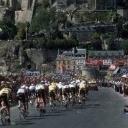Yahoo Answers is shutting down on May 4th, 2021 (Eastern Time) and beginning April 20th, 2021 (Eastern Time) the Yahoo Answers website will be in read-only mode. There will be no changes to other Yahoo properties or services, or your Yahoo account. You can find more information about the Yahoo Answers shutdown and how to download your data on this help page.
Trending News
why does boiling water freeze faster than cold water?
I've looked this up on wiki and can;t find anything.
Is it a myth?
5 Answers
- RoySLv 79 years agoFavorite Answer
Actually, the answer is 'It might, under certain conditions, but not usually.'
"'Does hot water freeze faster than cold water?'--the answer is 'Not usually, but possibly under certain conditions.' It takes 540 calories to vaporize one gram of water, whereas it takes 100 calories to bring one gram of liquid water from 0 degrees Celsius to 100 degrees C. When water is hotter than 80 degrees C, the rate of cooling by rapid vaporization is very high because each evaporating gram draws at least 540 calories from the water left behind. This is a very large amount of heat compared with the one calorie per Celsius degree that is drawn from each gram of water that cools by regular thermal conduction.
"It all depends on how fast the cooling occurs, and it turns out that hot water will not freeze before cold water but will freeze before lukewarm water. Water at 100 degrees C, for example, will freeze before water warmer than 60 degrees C but not before water cooler than 60 degrees C. This phenomenon is particularly evident when the surface area that cools by rapid evaporation is large compared with the amount of water involved, such as when you wash a car with hot water on a cold winter day. [For reference, look at Conceptual Physics, by Paul G. Hewitt (HarperCollins, 1993).]
"Another situation in which hot water may freeze faster is when a pan of cold water and a pan of hot water of equal mass are placed in a freezer compartment. There is the effect of evaporation mentioned above, and also the thermal contact with the freezer shelf will cool the bottom part of the body of water. If water is cold enough, close to four degrees C (the temperature at which water is densest), then near-freezing water at the bottom will rise to the top. Convection currents will continue until the entire body of water is 0 degrees C, at which point all the water finally freezes. If the water is initially hot, cooled water at the bottom is denser than the hot water at the top, so no convection will occur and the bottom part will start freezing while the top is still warm. This effect, combined with the evaporation effect, may make hot water freeze faster than cold water in some cases. In this case, of course, the freezer will have worked harder during the given amount of time, extracting more heat from hot water."
Robert Ehrlich of George Mason University, in Fairfax, Va., adds to some of the points made by Takahashi:
"There are two ways in which hot water could freeze faster than cold water. One way [described in Jearl Walker's book The Flying Circus of Physics (Wiley, 1975)] depends on the fact that hot water evaporates faster, so that if you started with equal masses of hot and cold water, there would soon be less of the hot water to freeze, and hence it would overtake the cold water and freeze first, because the lesser the mass, the shorter the freezing time. The other way it could happen (in the case of a flat-bottomed dish of water placed in a freezer) is if the hot water melts the ice under the bottom of the dish, leading to a better thermal contact when it refreezes."
http://www.scientificamerican.com/article.cfm?id=i...
@ Pork-Hunt: Try Google; there are plenty of hits that explain this phenomenon:
- SunnyLv 69 years ago
Boiling water has active molecules that are farther apart, being separated by air so the cold gets between them faster to freeze the water...
- Anonymous9 years ago
Yep, its a myth,
Unless you freeze boiling water vapour straight to frozen by sublimination (impossible in domestic environments), in which case that's super-fast.
- inthekitchenLv 79 years ago
I had thought that it was water that was boiled and then left to cool that froze faster than regular water that was the same temperature.Something to do with fewer impurities.
- How do you think about the answers? You can sign in to vote the answer.





